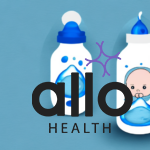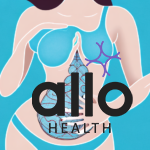L-Arginine Sachet Uses In Pregnancy

Allo Health is dedicated to personalized well-being, offering support and trusted information tailored to individual health goals. The platform emphasizes human-generated content, led by a distinguished medical team of experts, including physicians and sexual health specialists. Their commitment to credibility involves rigorous fact-checking, authoritative research, and continuous updates to ensure accurate, up-to-date information. Allo Health's unique approach goes beyond conventional platforms, providing expert-led insights and a continuous commitment to excellence, with user feedback playing a crucial role in shaping the platform's authoritative voice.

Dr Sanina Mansoor holds MBBS degree from Yenepoya university,Mangalore.She has 8 years of experience working as a medical officer at various health centres and medical colleges.
Why This Was Upated?
Our experts continually monitor the health and wellness space, and we update our articles when new information became available.
Updated on 02 January, 2024
- Article was updated as part of our commitment to diversity, equity, and inclusion.

"The following blog article provides information about a drug or brand name drug and its potential effects or benefits. However, it is crucial to understand that this information is intended for general educational purposes only and should not be considered a substitute for professional medical consultation. It is highly recommended to consult with a qualified healthcare professional before making any decisions regarding medication, treatment, or healthcare management.
Book consultation
Individuals have unique medical conditions, and the information provided in this article may not be applicable to everyone. Only a qualified healthcare provider can evaluate your specific medical situation, taking into account your medical history, conducting appropriate tests, and providing personalized advice and recommendations. They are equipped to make informed decisions tailored to your individual needs.
It is crucial to emphasize that self-diagnosis, self-medication, or disregarding medical advice can have serious health consequences. This article may reference specific brand names or drugs for illustrative purposes. Mention of these names does not imply endorsement, recommendation, or guarantee of their efficacy or safety. The choice of medication should be based on discussions and individualized guidance from a healthcare professional who has a comprehensive understanding of your medical condition.
"Expecting moms often have to make a lot of decisions about what they consume during pregnancy. One of the biggest areas of concern is prenatal supplements. Prenatal supplements ensure that you and your baby get the nutrients you need during pregnancy. L-Arginine sachets are one such supplement that has been rising in popularity due to its potential benefits for maternal and fetal health.
What is L-Arginine?
L-Arginine is an essential amino acid, which means it is not produced by the human body and must be obtained through diet or supplementation. It is considered a semi-essential amino acid because, although the body can synthesize it to some extent, certain conditions and stages of life might require additional dietary intake.
Amino acids are the building blocks of proteins and play crucial roles in various physiological processes within the body. L-Arginine has several important functions:
- Protein Synthesis: L-Arginine is used by the body to synthesize proteins. Proteins are needed for the growth, repair, and maintenance of tissues, as well as the production of enzymes, hormones, and other molecules.
- Nitric Oxide Production: One of the most significant roles of L-Arginine is its conversion into nitric oxide (NO) by the enzyme nitric oxide synthase (NOS). Nitric oxide is a vasodilator, meaning it helps relax and widen blood vessels, improving blood flow and circulation. This is important for various bodily functions, including cardiovascular health. Nitric oxide also plays a role in regulating blood pressure and immune responses.
- Ammonia Detoxification: L-Arginine participates in the urea cycle, which is responsible for removing excess ammonia, a waste product of protein metabolism, from the body. Ammonia can be toxic in high concentrations, so the urea cycle helps convert it into less harmful compounds for elimination.
- Wound Healing: L-Arginine is involved in the process of wound healing. It helps promote collagen formation and tissue repair, making it important for both internal and external wound healing.
- Hormone Regulation: L-Arginine is involved in the secretion of certain hormones, including insulin and growth hormone. It also plays a role in the release of prolactin and glucagon, among others.
- Immune Function: L-Arginine supports immune function by influencing the activity of immune cells and promoting the production of immune-modulating molecules.
- Cell Division and Reproduction: L-Arginine is needed for cell division and the synthesis of DNA, making it crucial for growth and reproduction.
L-Arginine can be found in various protein-rich foods, such as meat, poultry, fish, dairy products, nuts, and legumes. It is also available as a dietary supplement and is sometimes used for its potential health benefits, including improving blood flow, cardiovascular health, and exercise performance. The evidence for some of these benefits is mixed, and individual responses may vary.
While L-Arginine has potential benefits, excessive intake can lead to side effects, especially for those with certain health conditions. Before considering supplementation, it’s advisable to consult with a healthcare professional to ensure it’s appropriate for your individual health needs and circumstances.
L-Arginine Sachet Uses
L-Arginine sachets contain a powdered form of the amino acid L-Arginine, which is a semi-essential amino acid. These sachets are a convenient way to provide supplemental L-Arginine, and they are commonly used for various purposes, including athletic performance, cardiovascular health, and potentially during pregnancy. Let’s delve into the detailed uses of L-Arginine sachets:
- Cardiovascular Health: L-Arginine is a precursor to nitric oxide (NO), a molecule that helps dilate and relax blood vessels, leading to improved blood flow and reduced blood pressure. By increasing NO production, L-Arginine sachets can potentially promote better cardiovascular health. Improved blood circulation can support overall heart function and reduce the risk of cardiovascular diseases.
- Exercise Performance: Athletes and fitness enthusiasts use L-Arginine sachets to potentially enhance exercise performance. The improved blood flow resulting from increased nitric oxide production might help deliver more oxygen and nutrients to muscles during physical activity. This can contribute to better endurance and reduced fatigue during workouts.
- Erectile Dysfunction: L-Arginine is sometimes explored as a natural remedy for erectile dysfunction (ED). Nitric oxide’s role in promoting blood vessel relaxation can be beneficial for men with ED, as it can enhance blood flow to the genital region. Its effectiveness can vary, and it’s important to consult a healthcare provider for appropriate guidance.
- Wound Healing: L-Arginine plays a role in collagen synthesis, which is crucial for wound healing and tissue repair. In clinical settings, L-Arginine supplements have been used to potentially accelerate the healing of surgical wounds, ulcers, and burns.
- Pregnancy Support: During pregnancy, L-Arginine sachets are considered for their potential benefits in promoting proper blood circulation and reducing the risk of preeclampsia—a condition characterized by high blood pressure. By supporting blood vessel health and function, L-Arginine may contribute to a healthier pregnancy.
- Immune Function: L-Arginine is involved in immune responses and can influence the activity of immune cells. By providing supplemental L-Arginine, the body’s immune system might be better equipped to defend against infections and illnesses.
- Dosage and Consultation: It’s important to note that the appropriate dosage of L-Arginine sachets can vary depending on the specific goal and individual health factors. Consulting a healthcare provider before starting L-Arginine supplementation is crucial, as they can help determine whether it’s suitable for your needs and recommend the right dosage.
What Are L-Arginine Uses In Pregnancy?
L-Arginine is an amino acid that plays important roles in various physiological processes, including cardiovascular health, immune function, and protein synthesis. In the context of pregnancy, L-Arginine can have several potential uses and benefits, although research is still ongoing in some areas. Here are some ways L-Arginine might be relevant during pregnancy:
- Improved Blood Flow: L-Arginine is a precursor for nitric oxide (NO), a molecule that helps relax and widen blood vessels, promoting better blood flow. During pregnancy, proper blood circulation is crucial for the development of the placenta, which supplies oxygen and nutrients to the growing fetus. Improved blood flow can also help reduce the risk of complications such as preeclampsia, a condition characterized by high blood pressure and organ damage.
- Preeclampsia Prevention: Some studies suggest that L-Arginine supplementation might help reduce the risk of preeclampsia, a serious condition that can develop after the 20th week of pregnancy. Preeclampsia is characterized by high blood pressure and damage to organs, and it can pose risks to both the mother and the baby. L-Arginine’s ability to promote vasodilation and enhance blood flow could potentially contribute to reducing the incidence of preeclampsia, although more research is needed to establish its effectiveness.
- Fetal Growth and Development: Adequate blood flow is needed for the growth and development of the fetus. L-Arginine’s role in promoting blood vessel dilation and nutrient delivery could potentially support healthy fetal growth.
- Wound Healing and Tissue Repair: During pregnancy, the body undergoes significant changes, including stretching of the abdominal muscles and skin. L-Arginine’s role in collagen synthesis and tissue repair could aid in minimizing stretch marks and promoting overall skin health.
- Immune Function Support: L-Arginine supports immune function, which is important during pregnancy to help protect both the mother and the developing fetus from infections.
- Ammonia Detoxification: L-Arginine is involved in the urea cycle, which helps eliminate excess ammonia from the body. During pregnancy, the body’s metabolism changes, and the ability to eliminate waste products becomes crucial for both maternal and fetal health.
- Wound Healing After Delivery: L-Arginine’s potential wound-healing properties could be beneficial for mothers recovering from childbirth-related wounds, such as cesarean section incisions.
While L-Arginine has potential benefits, its use during pregnancy should be discussed with a healthcare provider. The safety and appropriate dosage of L-Arginine supplementation during pregnancy can vary based on individual health factors and the specific circumstances of the pregnancy. Consulting with a healthcare professional is needed before considering any dietary supplements, especially during pregnancy, to ensure the health and well-being of both the mother and the developing fetus.
Frequently Asked Questions
(1) Can L-Arginine Sachets Be Used Safely During Pregnancy?
Yes, L-Arginine sachets can be considered during pregnancy, but it’s crucial to consult your healthcare provider before using them. L-Arginine plays a role in blood flow and may have benefits for fetal growth and preeclampsia prevention. Individual health factors and dosage need expert consideration.
(2) How Do L-Arginine Sachets Support Pregnancy Health?
L-Arginine sachets offer potential benefits for pregnant women by promoting improved blood circulation, which aids in proper fetal development. They may also help lower the risk of preeclampsia, a condition linked to high blood pressure. L-Arginine’s vasodilation properties contribute to these benefits.
(3) Are L-Arginine Sachets a Treatment for Preeclampsia?
L-Arginine sachets aren’t a treatment for preeclampsia. While they may reduce the risk, they aren’t a substitute for medical care. If diagnosed with preeclampsia, follow your healthcare provider’s guidance for treatment and management, which may include medications and monitoring.
(4) Can L-Arginine Sachets Improve Fetal Growth?
L-Arginine’s ability to enhance blood flow can indirectly contribute to healthy fetal growth by ensuring proper nutrient and oxygen supply. Fetal growth is influenced by various factors, and L-Arginine is just one aspect. Maintaining a balanced diet and prenatal care are equally important.
(5) What’s the Right Way to Use L-Arginine Sachets During Pregnancy?
Always consult your healthcare provider before using L-Arginine sachets during pregnancy. They will determine if it’s suitable for your individual health condition and needs. If advised to use them, follow the recommended dosage provided by your healthcare provider to ensure safety and effectiveness.
(6) Can L-Arginine Sachets Cause Any Side Effects During Pregnancy?
L-Arginine sachets are generally considered safe, but like any supplement, they might cause side effects. Common side effects can include gastrointestinal discomfort, such as bloating or diarrhea. It’s important to report any adverse effects to your healthcare provider and discontinue use if advised.
(7) Can L-Arginine Sachets Replace a Balanced Diet During Pregnancy?
No, L-Arginine sachets are not a substitute for a balanced diet. While they can offer potential benefits, they should complement a healthy diet, not replace it. Nutrient-rich foods provide a wider range of essential vitamins and minerals crucial for both maternal and fetal health.
(8) Are There Any Situations Where L-Arginine Sachets Should Be Avoided During Pregnancy?
L-Arginine sachets might not be suitable if you have certain medical conditions, such as herpes infections, asthma, or low blood pressure. Always disclose your medical history to your healthcare provider before starting any supplement, as it helps them make an informed decision based on your specific circumstances.
(9) Can L-Arginine Sachets Impact Breastfeeding After Pregnancy?
Research on L-Arginine’s impact during breastfeeding is limited. While it’s generally considered safe, it’s advisable to consult your healthcare provider before using L-Arginine sachets while breastfeeding. They can provide personalized guidance based on your postpartum health and breastfeeding needs.
(10) What Other Ways Can I Support a Healthy Pregnancy Besides L-Arginine Sachets?
Maintaining a healthy lifestyle is crucial during pregnancy. Focus on a balanced diet rich in nutrients, regular prenatal check-ups, appropriate physical activity, sufficient rest, and stress management. Follow your healthcare provider’s recommendations and consider L-Arginine sachets only as part of a comprehensive approach to maternal and fetal well-being.






































